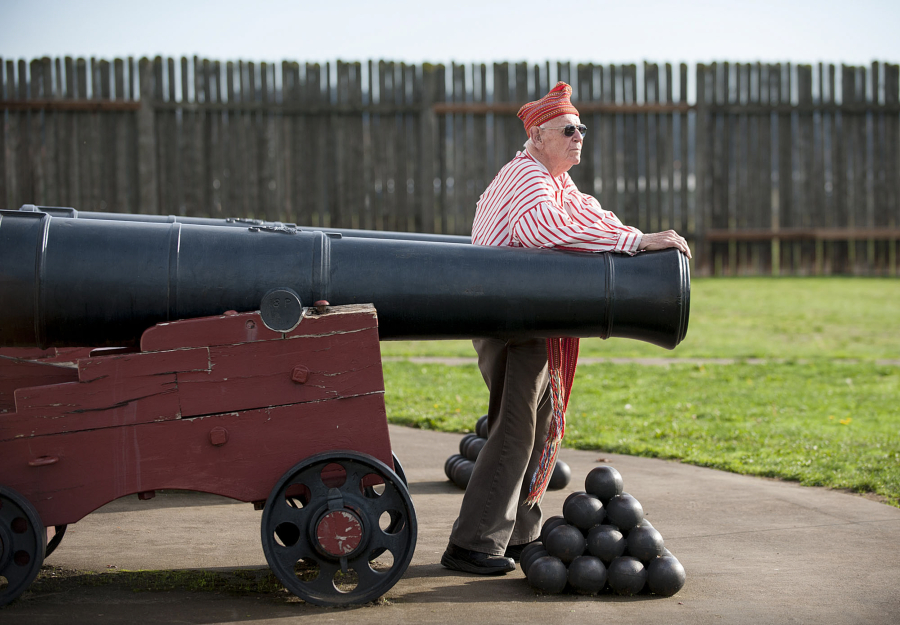Fred Bridges’ remarkable route along World War II invasion sites was part of our Veterans Day coverage on Friday.
As a Navy medical corpsman, Bridges treated and helped evacuate battlefield casualties during the D-Day invasion of Normandy. Then Bridges was assigned to a Marine unit was part of the invasion force that landed on Okinawa.
There was an interesting side note to the story. When he entered the service, Bridges had not been planning on either outcome. Obviously, we’re not talking about the historic milestones on his invasion itinerary. We’re talking about branches of service: Bridges expected to wind up in the Army.
It was something of a tradition, Bridges said in a recent interview at Fort Vancouver National Historic Site, where he has been a volunteer for more than 20 years.
He was drafted when he turned 18 in Washington, Pa.
“I wanted to go into the Army because I was from an Army family,” he explained.
His father was in the Army infantry during World War I. Three of his father’s brothers — Fred’s uncles — also were in the Army: One was in the infantry, another in a military hospital and another in a motorized unit.
But Bridges wound up in the Navy, even after he explained that “I can walk a lot farther than I can swim.”
However, in failing to become a soldier, Bridges actually followed another family member.
“My grandfather tried to enlist in World War I. The doc told him, ‘You passed the physical; but your son just went through, so you can’t be the age you say you are,’ ” Bridges said.
“He was 55.”
Off Beat lets members of The Columbian news team step back from our newspaper beats to write the story behind the story, fill in the story or just tell a story.





